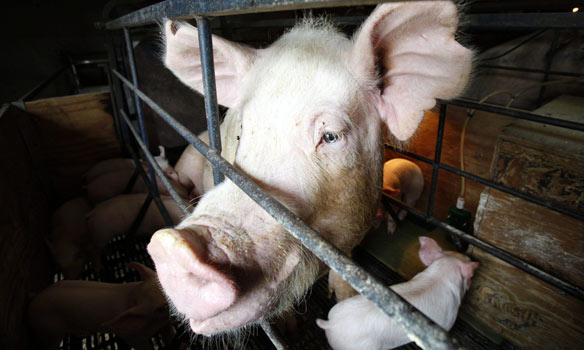US-Korea trade deal hurts Canadian hog farmers

Portage | Tuesday, 18 October 2011
US-Korea trade deal hurts Canadian hog farmers
Written by Kelvin Heppner
With the U.S. Congress approving its free trade deal with South Korea last week, Canadian pork could soon be shut out of its third largest market.
"We are definitely envious of the U.S. position," says Martin Rice, Executive Director of the Canadian Pork Council. "We’re in a position where we had a deal that was almost completed and now it’s basically been on ice for two or three years."
Free trade negotiations between Canada and Korea started in 2004 and have been stalled since 2008. With the E.U. and Chile already having agreements in place, Canada is now the only major pork supplier to Korea that does not have a trade deal in place.
"This is a market that this year we project will be worth $300 million. We will be out of that market very rapidly, say within two years, if we don’t have something that is going to help us catch up fairly quickly," he says.
"We’re looking at tariffs in the order of 20 and 20 plus percent for these products," says Rice, noting those tariffs have temporarily been lifted as Korea deals with a shortfall of pork related to the challenges with foot-and-mouth disease earlier this year. "But under their normal circumstances we’re looking at tariffs of 20 and 20 plus percent. So if you look at arrangements that are going to eliminate that, or reduce it in stages, this business has such tight margins that even with a 4 or 5 percent advantage we’ll have no choice but to not sell pork into Korea."
He notes there is some resistance to a deal with Korea coming from the Canadian auto sector.
"On the Korean side, I think it’s maybe the size of the Canadian market that has them focusing more on the big players like the U.S. and the E.U. However we expect that Korea will not want to not have an important supplier like Canada. In fact Canada, for many years, has been the number one pork supplier to Korea," he says. "Is our country willing to sacrifice the export opportunities we have now for pork and other sectors for some sensitivity about imports of autos? We need to look for a way, as the U.S. and E.U. did, to recognize that sensitivity without losing the economic advantages of a free trade deal."





